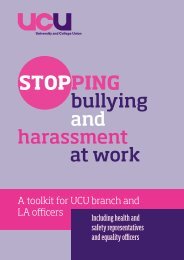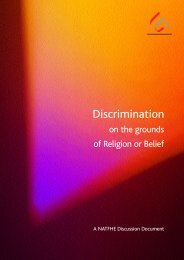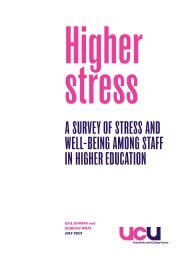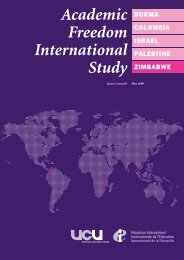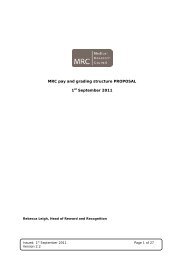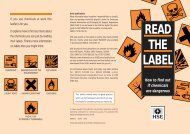GLOBALISATION AND HIGHER EDUCATION - UCU
GLOBALISATION AND HIGHER EDUCATION - UCU
GLOBALISATION AND HIGHER EDUCATION - UCU
You also want an ePaper? Increase the reach of your titles
YUMPU automatically turns print PDFs into web optimized ePapers that Google loves.
AUT prefaceDEA prefaceThis guidance, which has been produced inconjunction with the Development EducationAssociation, is designed to assist members who maybe involved in or are contemplating work abroad or incollaboration with colleagues or institutions in othercountries. Globalisation of world trade will increase theamount of international activity for universities.Equally, financial pressures on higher educationinstitutions lead them to see their international role asincreasingly entrepreneurial, contributing to nationalexport earnings. While this process may createopportunities for universities and individual academics,it may also give rise to ethical dilemmas whichpractising professionals need to address.These guidelines examine some of those dilemmas andsuggest how they can be tackled. We also intend touse the guide to persuade universities to adopt codesof social accountability and thus avoid such issueshaving to be resolved by individual members of staffwithout any institutional support. This guidanceencourages an approach to international academicactivity which promotes the contribution of highereducation to development and supports governmentpriorities of attacking poverty, illiteracy and disease.DAVID TRIESMANGeneral SecretaryHigher education has always operated within a globaland multi-cultural arena. But the environment haschanged dramatically over the past decade. We nowlive in the era of instant global communications. Manyhigher education institutions see themselves asinternational bodies. But what do we use as the basisfor our understanding of the wider world?The Development Education Association (DEA) is verypleased to be associated with this initiative because itis one of the first attempts to address the role ofacademics in this globalised educational arena.Development education as a term may not be wellknown in higher education, but its principles can beseen within many courses and activities. Central to ourperspective is that education which does not take intoaccount our global interdependence fails to givepeople a full understanding of whatever subject or skillthey are learning. We also start from a recognitionthat we need to understand the causes of injusticeand inequality in the world so that we can worktowards a universal goal of just and equitablesustainable development.For the DEA, this guidance is a contribution toencouraging academics to recognise these agendas intheir work. We are also pleased to acknowledge theencouragement and support of the Department forInternational Development (DFID) with this initiativeand welcome DFID’s increasing contribution topromoting a greater understanding of global anddevelopment issues.DOUGLAS BOURNDirector


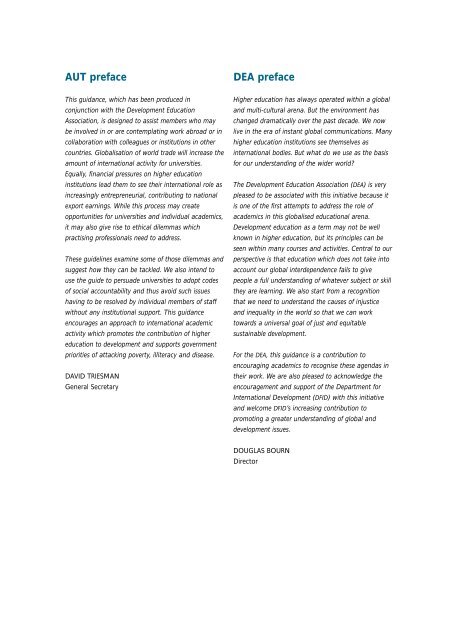
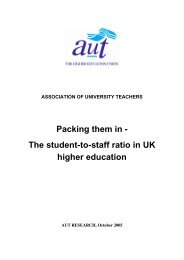
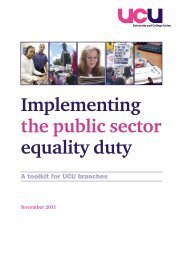
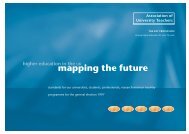
![(.pdf) [29kb] - UCU](https://img.yumpu.com/50914942/1/184x260/pdf-29kb-ucu.jpg?quality=85)
